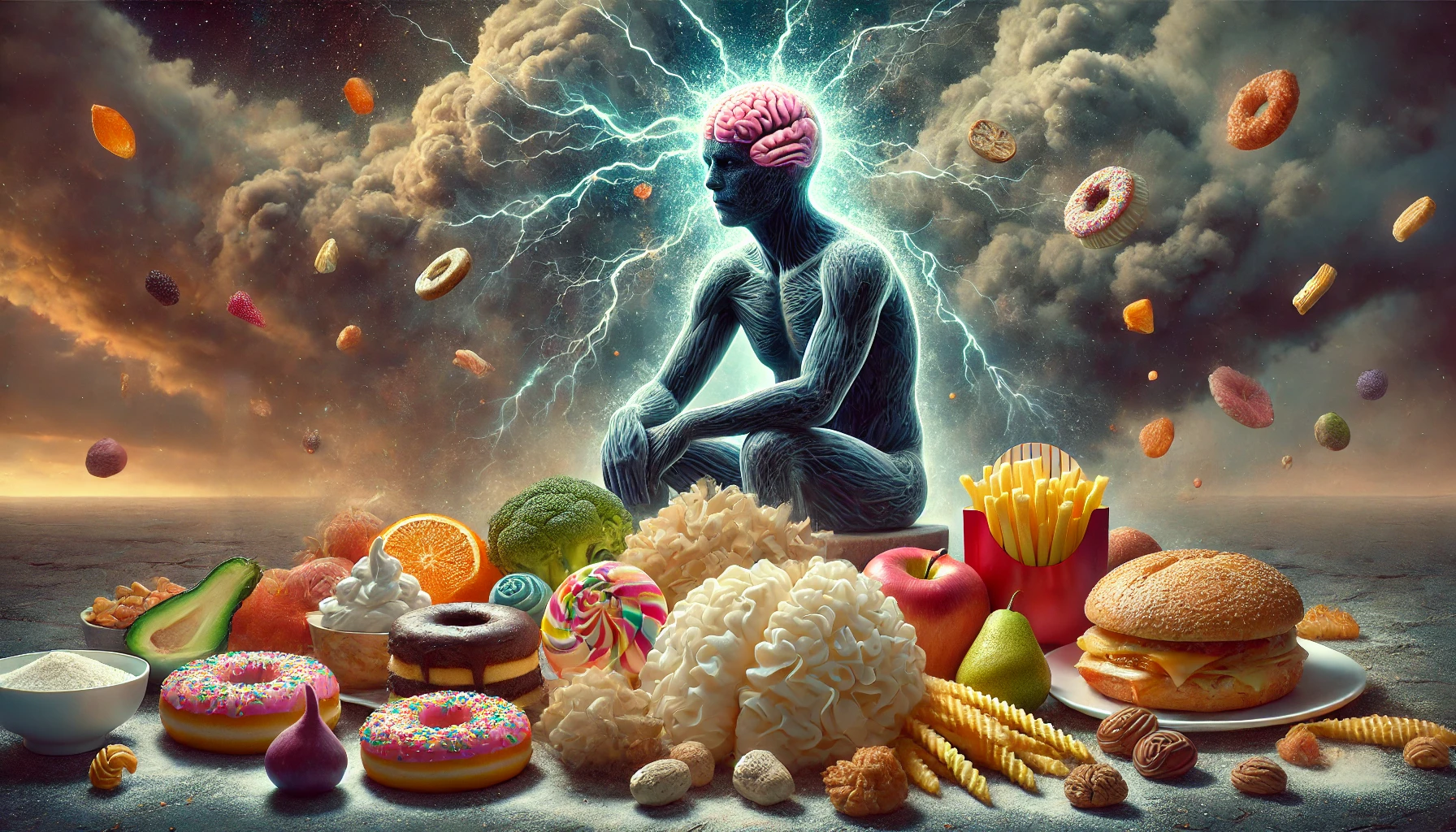
We often hear about the impact of sugar on physical health, but its connection to mental wellbeing is equally significant. The intricate interplay between diet and mental health is an area of increasing research, and sugar, with its profound effects on the body, plays a crucial role.
The Physiological Impact
Sugar, particularly in the form of added sugars found in processed foods and beverages, triggers a cascade of physiological events that can impact mental health.
Blood Sugar Fluctuations: Rapid spikes and crashes in blood sugar levels, often following the consumption of sugary foods, can lead to mood swings, irritability, and anxiety. Studies have shown that individuals with poor glycemic control are more likely to experience symptoms of depression and anxiety. (Knüppel, A., Shipley, M. J., Llewellyn, C. H., & Brunner, E. J. (2005). Sugar intake from sweet food and beverages, common mental disorder and depression: prospective findings from the Whitehall II study. British Journal of Psychiatry, 187(5), 430-435.)
Inflammation: Excessive sugar intake can promote chronic inflammation, which has been implicated in various mental health conditions, including depression and bipolar disorder. (Westover, A. N., & Marangell, L. B. (2002). A cross-sectional analysis of diet quality and depressed mood in the US adult population in NHANES III. Journal of Affective Disorders, 69(1-3), 209-215.)
Neurotransmitter Imbalance: Research suggests that sugar can disrupt the delicate balance of neurotransmitters in the brain, particularly dopamine and serotonin, which are crucial for mood regulation. (Avena, N. M., Rada, P., & Hoebel, B. G. (2008). Evidence for sugar addiction: behavioral and neurochemical effects of intermittent, excessive sugar intake. Neuroscience & Biobehavioral Reviews, 32(1), 20-39.)
The Psychological Impact
Beyond the physiological effects, the psychological and behavioral aspects of sugar consumption can also affect mental health.
Addiction: Sugar can trigger addictive behaviors, leading to cravings, compulsive eating, and feelings of guilt and shame, which can negatively impact self-esteem and mental wellbeing. (Gearhardt, A. N., Corbin, W. R., & Brownell, K. D. (2009). Food addiction: an examination of the diagnostic criteria for dependence. Journal of Addiction Medicine, 3(1), 1-7.)
Strategies for a Healthier Relationship with Sugar
Reducing sugar intake and adopting healthier dietary habits can significantly improve mental wellbeing.
Focus on Whole Foods: Prioritize whole, unprocessed foods, such as fruits, vegetables, whole grains, and lean protein, which provide sustained energy and essential nutrients without the blood sugar spikes associated with added sugars.
Read Labels Carefully: Be mindful of hidden sugars in processed foods and beverages. Familiarize yourself with common sugar aliases and choose products with minimal added sugars.
Manage Stress: Explore healthy stress management techniques, such as exercise, mindfulness, or spending time in nature, to reduce emotional eating and promote mental wellbeing.
Seek Professional Help: If you're struggling with sugar cravings, emotional eating, or mental health concerns, consider consulting a qualified healthcare professional, such as a registered dietitian or therapist, who can provide personalized support and guidance.
Remember, small changes in your dietary habits can have a profound impact on your mental health. By adopting a balanced and mindful approach to sugar consumption, you can foster a healthier relationship with food and promote overall wellbeing.
REFERENCES:
Knüppel, A., Shipley, M. J., Llewellyn, C. H., & Brunner, E. J. (2005). Sugar intake from sweet food and beverages, common mental disorder and depression: prospective findings from the Whitehall II study. British Journal of Psychiatry, 187(5), 430-435.
Westover, A. N., & Marangell, L. B. (2002). A cross-sectional analysis of diet quality and depressed mood in the US adult population in NHANES III. Journal of Affective Disorders, 69(1-3), 209-215.
Avena, N. M., Rada, P., & Hoebel, B. G. (2008). Evidence for sugar addiction: behavioral and neurochemical effects of intermittent, excessive sugar intake. Neuroscience & Biobehavioral Reviews, 32(1), 20-39.
Bested, A. C., Logan, A. C., & Selhub, E. M. (2013). Intestinal microbiota, probiotics and mental health: from Metchnikoff to modern advances: Part II - contemporary contextual research. Gut Pathogens, 5(1), 3.
Gearhardt, A. N., Corbin, W. R., & Brownell, K. D. (2009). Food addiction: an examination of the diagnostic criteria for dependence. Journal of Addiction Medicine, 3(1), 1-7.
Konttinen, H., Haukkala, A., Sarlio-Lähteenkorva, S., & Silventoinen, K. (2012). Emotional eating, depressive symptoms, and body mass index: a population-based prospective study. BMC Public Health, 12, 1013.



